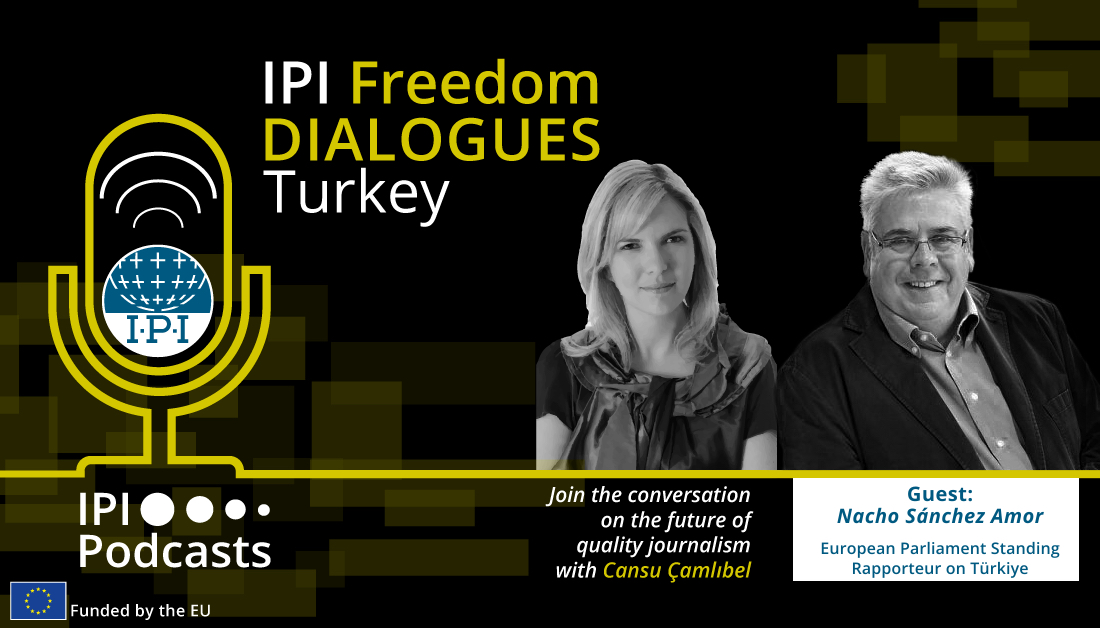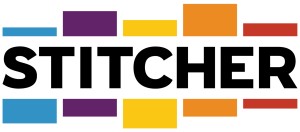Also available on:
The 31st episode of IPI’s podcast series IPI Freedom Dialogues: Turkey is out now!
Previous episodes of IPI’s Freedom Dialogues: Turkey podcasts are available here.
In this episode, host Cansu Çamlıbel invites Nacho Sánchez Amor, the European Parliament’s rapporteur on Turkey, to discuss Turkey’s newly adopted “disinformation” law and its potential ramifications as well as the systemic impediments to Turkey’s becoming a mature democracy and the European Union’s role in assessing the progress of Turkey in the European Union accession process.
As Çamlıbel noted, under Turkey’s new “disinformation” law, journalists and social media users can potentially face up to three years in prison for “distributing deceptive information publicly”. She highlighted the law’s lack of definition of “deceptive information” as a key problem. As the task of defining “disinformation” in each case falls upon an individual judge, given the lack of judicial independence in Turkey, the government’s arbitrary power to criminalize critical speech is likely to increase.
In response, Amor stated that “the problem is the whole complete environment that has been designed to prosecute criticism”, with the “disinformation” law being “another turn of the screw of the authoritarian trend in Turkey”. Amor went on to say that the administrative bodies dealing with freedom of expression are policing any kind of criticism, especially that which is coming from journalists. While the judiciary could be a remedy for this criminalization of criticism, he said its lack of independence contributes to “the creation of a ‘silent bubble’ in which the only message to be heard is the message of [those in] power”.
Asked by Çamlıbel if he thinks that the EU’s concerns and criticism fall on deaf ears in the Turkish government, Amor noted that when Turkey applied for EU membership, Turkey agreed to the assessment process for candidate countries carried out by the European Parliament and the European Commission. And on this he said: “We continue to repeat that there is no condition for the reopening of negotiations if there are no political reforms in Turkey. Sometimes I feel unheard, but this is not an issue for me … I have to fulfill my mandate which is to assess the process of Turkey in approaching the EU.”
Topics covered in this podcast include:
- The systematic efforts of the Turkish government to silence criticism in the country
- The “disinformation” law adopted by the Turkish parliament on October 13, 2022
- The Turkish government’s interference in the private communication of citizens
- The lack of independence of Turkey’s judiciary and its impediment of the country’s progress towards EU accession
- The EU’s role in assessing Turkey’s progress towards EU membership
Highlights from the episode (Nacho Sánchez Amor):
- “Not only in Turkey but in many authoritarian states, the government officials say that our laws are similar to those of mature democracies. The problem is not the wording of the law in Turkey. The problem is the ‘data protection’ of the aspect for the police, prosecutors and judges. This is completely out of the scope of such laws in mature democracies.”
- “If Turkey wants to move closer to European standards, in no way any administrative authority could ask a tech company for the information about private communication of a citizen without proper judicial proceedings. But I can assure you they will use this against criticism.”
- “I always tell my counterparts in Turkey; don’t try to trick us, don’t try to fool us. Whatever your geopolitical value is, the European Union is still a club of democracies.”
- “We are very worried about this environment ahead of the elections. The understanding that a democracy only entails a ballot box and the counting of votes is wrong. Democracy is what happens between the elections.










